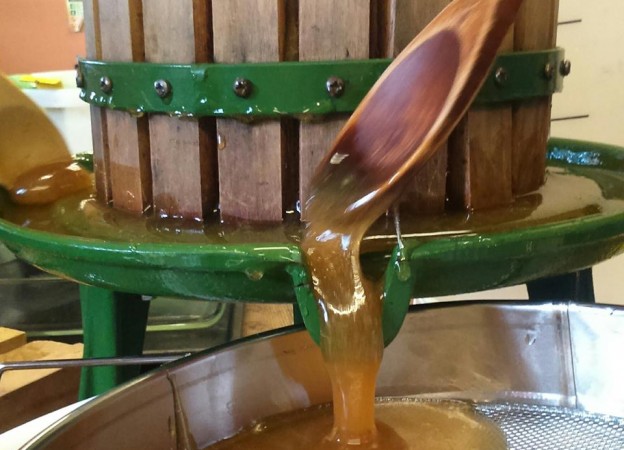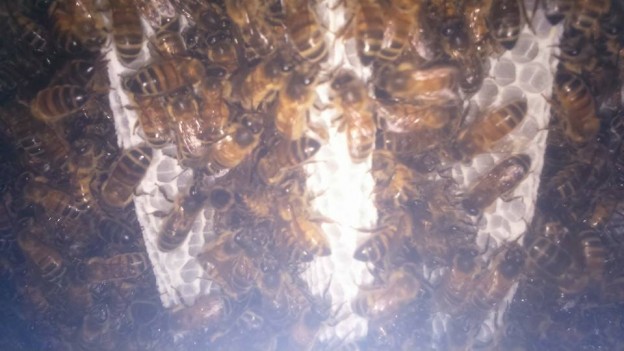I was very luck last week. I got to take part in the pressing of two boxes of honey from the apiary. Sean Hearn, is the man in charge of all things “bee” at Organic Lea. Through him, I’ve had my first introduction to the style of bee husbandry called “natural bee keeping” which I first wrote about here.
Natural bee keeping is much different than the more commonly practiced or industrial bee keeping, and the more I research different aspects, the more I find myself feeling that the natural method is more to my liking.
Following on from these differences, it should not be a surprise to learn that the process of honey extraction is another area where Sean steers away from the common industrial methods. I remember seeing a program about an off grid couple in the Blueridge mountains in the Appalachian mountain range who had top bar hives. Unfortunately the program was quite light in detail, but the woman did mention “pressing” the comb was the only way they had to release the honey.
I am not a cheap person when it comes to tools, nor am i frivolous. I believe that buying the best tools once is the best investment. When it came to a “honey extractor” I just didn’t like the notion of having a piece of equipment sit around for most of the year because it had only one use. When Sean said I could join the team for pressing, I was very excited but I had no idea how much that afternoon would teach me.
Foremost, wanted to know why Sean felt pressing was a better method than using a centrifuge extractor. I expected it was going to be a similar reason to my own conclusion, that a tool with one use that was used so infrequently wasn’t a good investment but to my surprise this turned out to be quite low on his list.
You see when bees gather nectar, that nectar includes vitamins and minerals from the plant, the bee process it adding important enzymes and probiotics all in tiny trace amounts. When a bee fills a comb with her honey it is then capped off from the air and it all stays sealed inside.
Harvesting honey requires “uncapping” of the cells. In industrial operations, the uncapped honey gets inserted into a centrifuge which spins with such force air forces the honey out to the sides of the barrel where it drips down into a bucket. The process relies on air. Unfortunately, exposure to air releases some of the enzymes and probiotics. Thus the honey loses a significant amount of it’s original ingredients.
Cold pressing honey relies on pressure to force the honey out of the comb and while it still has contact with some air in the process of reaching the bucket below, this is reduced. Less of those important enzymes and probiotics are lost. Sean, and many other natural bee keepers believe that by retaining as much of these ingredients the honey is closer to it’s natural state and thus nutritionally superior.
I am a honey lover, but that day in the kitchen I tasted something far richer and more complex than even that which I have bought in local markets. It makes me wonder if that might have been the first real honey I have ever tasted?
Perhaps you have heard that honey was at one time considered a healing substance or even a cleanser? I have and I’ve often wondered. It seems logical that honey in it’s purest form was the start of these assertions. Perhaps modern technology, although faster has led us to harvests that may be high in efficiency but falling short on quality.

